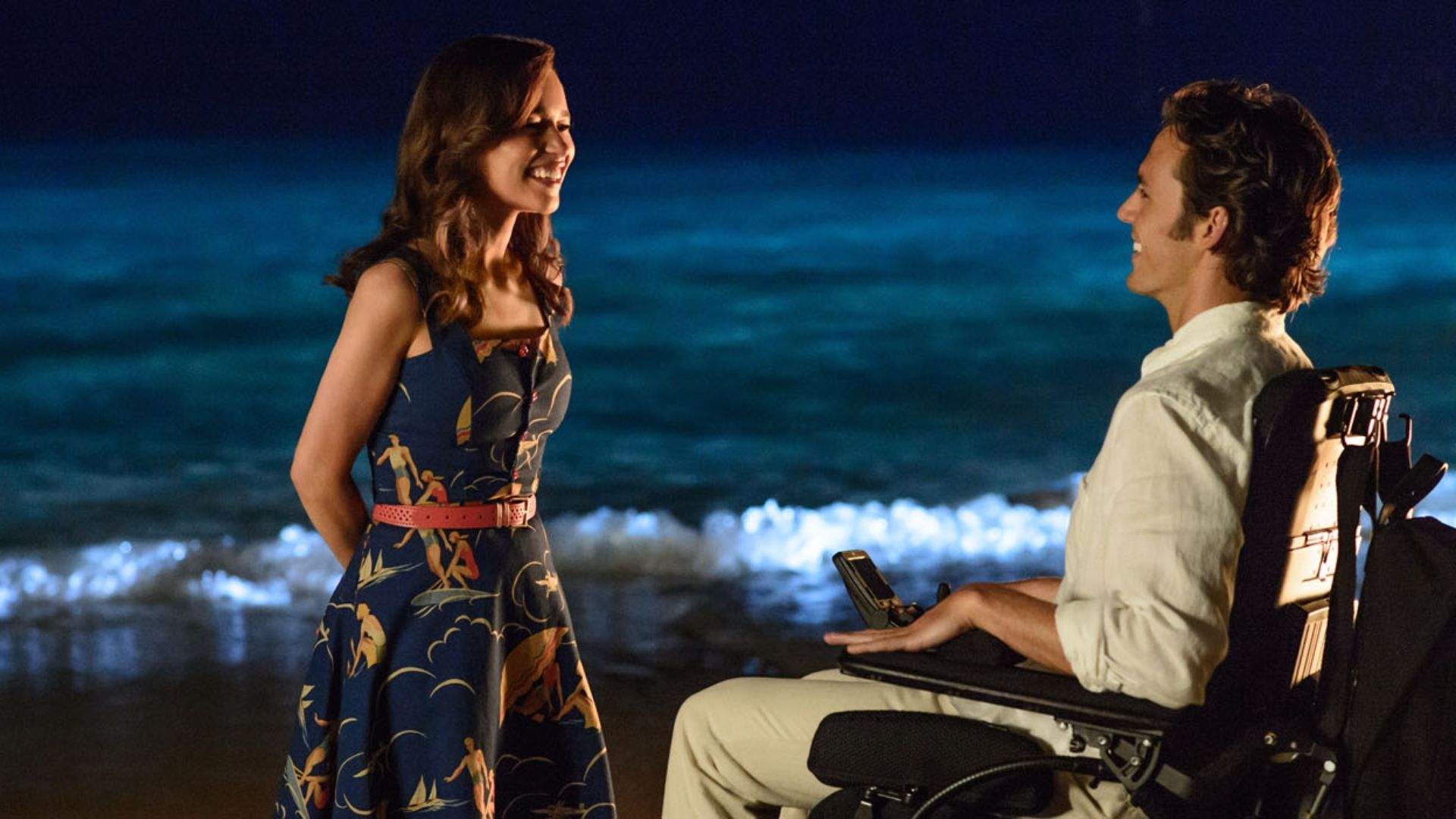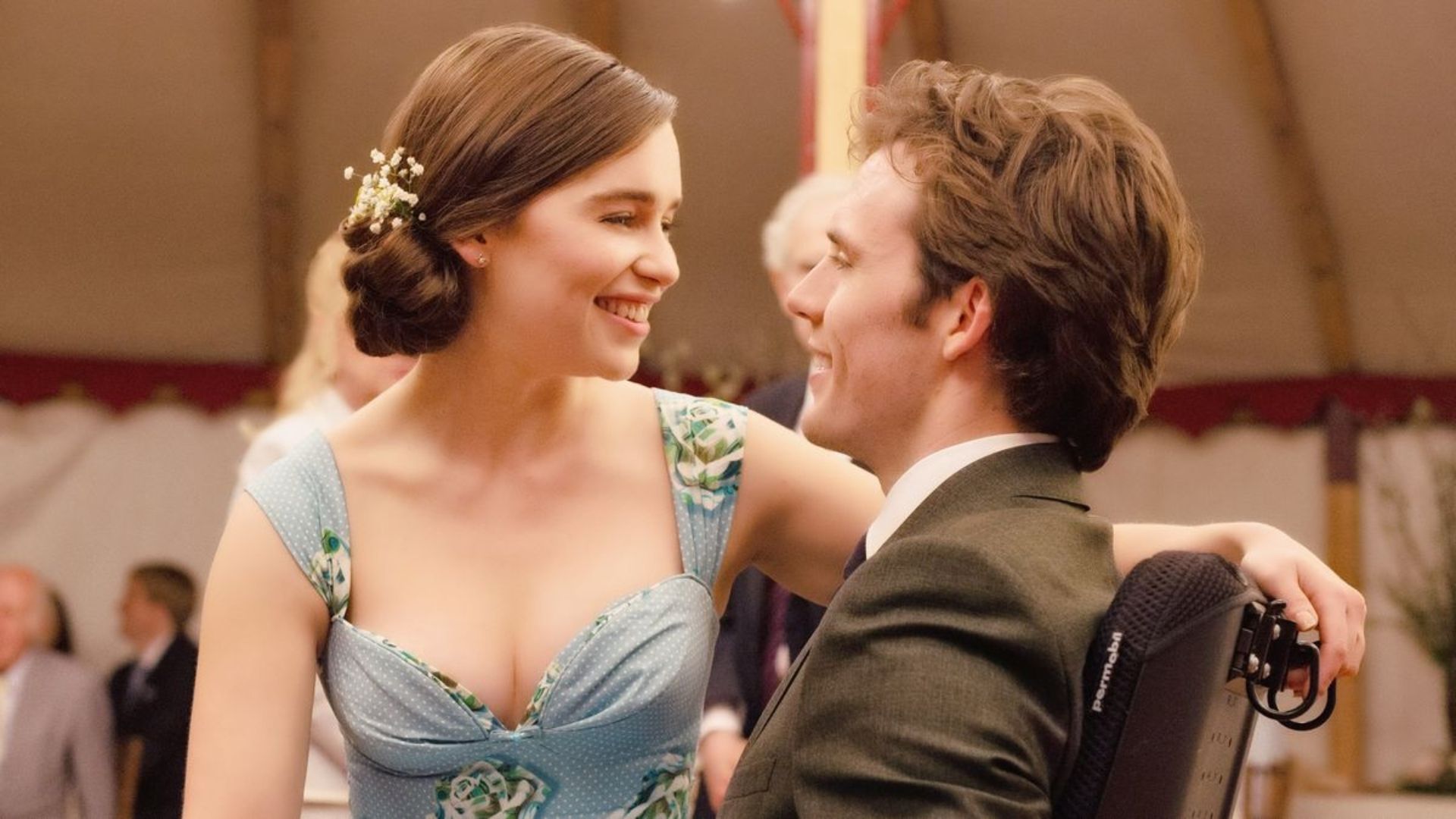
One aspect of cinema that viewers consistently crave is immersing themselves in heartfelt romantic dramas, which evoke strong emotions and often leave them dabbing their eyes by the film’s end. In 2016, actress Emilia Clarke, best known for her role in Game of Thrones, teamed up with Sam Claflin, star of Daisy Jones and the Six, in the movie Me Before You. This film is an on-screen adaptation of Jojo Moyes’ novel, following a deeply moving relationship that develops between a vivacious caregiver and the quadriplegic man she cares for.
Despite garnering significant box office success with earnings of $208.3 million on a budget of merely $20 million, the film “Me Before You” failed to impress critics and caused a stir upon its global release due to its controversial portrayal. Members of the disability rights community voiced their concerns, claiming that the drama presented an unfair depiction of their community, leading to protests and outcry. In this article, we’ll delve into the plot of the movie and examine why it sparked so much controversy and uproar.
A Poignant Romantic Drama Adaptation



The 2016 romantic drama “Me Before You” is a heartrending adaptation of Jojo Moyes’ novel, focusing on the powerful bond that develops between a caregiver and her tetraplegic patient. This story revolves around Louisa “Lou” Clark (played by Emilia Clarke), a woman with a zest for life who struggles to find satisfaction in various jobs. When she takes up caring for the wheelchair-bound Will Traynor (Sam Claflin), a former banker, her vibrant spirit and determination to bring joy into his life gradually melt away his cynicism.
Despite his challenging circumstances, Lou manages to help Will rediscover happiness and purpose in life. However, a shocking revelation arises when Lou learns that Will intends to travel to Switzerland for assisted suicide. As their relationship deepens and romantic feelings emerge between these two unlikely souls, they find themselves grappling with the direction of their individual lives. Determined to alter his decision, Lou sets out on a mission to persuade Will that there’s still much more life waiting to be lived together.
The heartwarming film “Me Before You” had a strong debut on June 3, 2016, and surpassed predictions at the box office, amassing $18.3 million in its first weekend and eventually earning a total of $208.3 million by the end of its theater run, all for an initial budget of only $20 million. Audiences were captivated by Emilia Clarke’s stunning portrayal of the charming Lou and her seamless on-screen chemistry with Sam Claflin, but critics found fault with how the adaptation tackled its sensitive themes, resulting in a 54% score on Rotten Tomatoes compared to the audience’s more positive 73% rating on the Popcornmeter.
‘Me Before You’ Sparks Controversy & Protests



Just like its literary equivalent, “Me Before You” stirred up a whirlwind of protests and controversy upon its release, sparked by outrage over the message it seemed to convey. As a fan who values inclusivity and representation, I felt deeply troubled when members of the disability rights movement criticized the adaptation for seemingly advocating that life is better ended than lived with a disability, and that those with disabilities are a burden on their loved ones and caregivers.
Critics also pointed out that the film could be seen as promoting suicide as a means for families to “live boldly,” which was deeply problematic. Additionally, some argued that the portrayal of disabled characters in the film was exploitative towards the disabled community.
As a passionate cinephile, I couldn’t help but notice the wave of criticism surrounding the casting choice for Will Traynor in “Me Before You,” which was none other than Sam Claflin. Some viewers argued that this decision, while seemingly aimed at accurately portraying the life of a tetraplegic individual, fell short by not hiring or providing opportunities to someone with disabilities for the role itself.
The hashtag #MeBeforeEuthanasia gained traction online, alongside a campaign spearheaded by Not Dead Yet UK, which denounced the film as a “disability snuff movie.” This label suggested that the film conveyed a grim message to disabled viewers: it’s better if you’re dead.
In response, demonstrations were held not only in the United States and the United Kingdom but also in Australia following the film’s release, expressing disappointment and concern over the portrayal of disability in the drama.
Jojo Moyes, the author, addressed the strong criticism from disability groups regarding the movie adaptation. She explained that her inspiration for writing the novel came from her personal encounters with family members who needed round-the-clock care and a powerful article she read about a quadriplegic man, who, despite his parents’ efforts, ultimately chose to go to an assisted suicide facility. In an interview with Stylist in 2016, Moyes admitted that she was taken aback by the controversy surrounding “Me Before You,” as she had not anticipated it would stir such strong reactions.
In both the movie and the novel, no other characters share his view on what actions to take. This isn’t intended as a message; it simply focuses on the individual decisions of one particular character, nothing more.
Stream Me Before You on Prime Video.
Read More
- Silver Rate Forecast
- Gold Rate Forecast
- Grimguard Tactics tier list – Ranking the main classes
- USD CNY PREDICTION
- Gods & Demons codes (January 2025)
- Former SNL Star Reveals Surprising Comeback After 24 Years
- Maiden Academy tier list
- Superman: DCU Movie Has Already Broken 3 Box Office Records
- Honor of Kings returns for the 2025 Esports World Cup with a whopping $3 million prize pool
- PUBG Mobile heads back to Riyadh for EWC 2025
2025-01-11 23:31